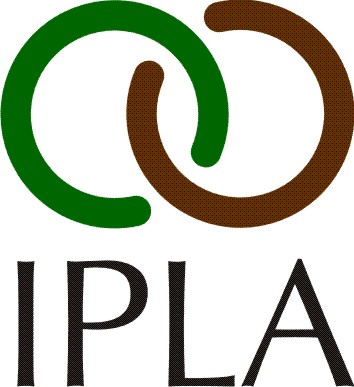Promoting the International Partnership for Expanding Waste Management Services of Local Authorities (IPLA)
Description
- Enable LAs to share experience in addressing waste management challenges, as well as in taking advantage of opportunities; - Help in mainstreaming integrated and sustainable waste management strategies such as ISWM and 3Rs; - Promote "green jobs" and stimulate "green investments" in waste management; - Encourage awareness raising and capacity building programs in critical areas of concern; and - Support local action plans and strategies for sustainable waste management.
The major functions of IPLA is governed by a IPLA Advisory Board. Overall global coordination support is provided by UNCRD in Nagoya./Japan with the supports of a IPLA Global Secretariat and a number of IPLA Regional and Sub-Regional Secretariats. For details, please visit IPLA website - http://www.uncrd.or.jp/env/ipla/index.php?menu=378
IPLA serves as a 'dynamic knowledge platform' and a 'decentralized network' among a wide range of partners such as cities and municipalities, governments, the private sector, NGOs, academic and research institutions, international and donor organizations, UN agencies, among others, to address waste management issues, including new emerging issues, at local/municipality level. IPLA builds capacity of local governments and municipalities by sharing knowledge and expertise, best practices and innovative policy options through its dedicated web-portal, regularly held Global Forums, workshops. IPLA partner institutions also carry out a number of capacity building and training activities in waste management related areas. By creating an interface between public and private sector, IPLA combines the advantages of the private sector (dynamism, access to financial resources and latest technologies, managerial efficiency, and entrepreneurial spirit, etc.) with social concerns and responsibility of the public sector (public health and better life, environmental awareness, local knowledge and job creation, etc.).
Global Secretariat-tbc;
Regional Secretariat for Africa, Asia and Latin America- UN-HABITAT;
Sub-Regional Secretariat for South Asia- SACEP;
Sub-Regional Secretariat for the Pacific SIDS- SPREP PROE;
Sub-Regional Secretariat for Southern Latin America- Abrelpe ISWA;
Sub-Regional Secretariat for Northern Latin America- UAESP;
Sub-Regional Secretariat for the region covering Australia and New Zealand- Griffith University;
Sub-Regional Secretariat for Mashreq and Maghreb Countries- SWEEPNET;
Sub-Regional Secretariat for Central and Eastern Europe- Regional Environmental Centre;
Sub-Regional Secretariat for the Caribbean SIDS- USC;
Sub-Regional Secretariat for Russia and EurAsEC Countries- ICBET;
Sub-Regional Secretariat for Southern Africa- IWWG;
Sub-Regional Secretariat for Western Africa- LAWMA;
Sub-Regional Secretariat for East-Asia- Basel Convention Regional Centre China.
SDGS & Targets
Goal 11
Make cities and human settlements inclusive, safe, resilient and sustainable
11.1
By 2030, ensure access for all to adequate, safe and affordable housing and basic services and upgrade slums
11.1.1
Proportion of urban population living in slums, informal settlements or inadequate housing
11.2
11.2.1
Proportion of population that has convenient access to public transport, by sex, age and persons with disabilities
11.3
11.3.1
Ratio of land consumption rate to population growth rate
11.3.2
Proportion of cities with a direct participation structure of civil society in urban planning and management that operate regularly and democratically
11.4
Strengthen efforts to protect and safeguard the world’s cultural and natural heritage
11.4.1
Total per capita expenditure on the preservation, protection and conservation of all cultural and natural heritage, by source of funding (public, private), type of heritage (cultural, natural) and level of government (national, regional, and local/municipal)
11.5
By 2030, significantly reduce the number of deaths and the number of people affected and substantially decrease the direct economic losses relative to global gross domestic product caused by disasters, including water-related disasters, with a focus on protecting the poor and people in vulnerable situations
11.5.1
Number of deaths, missing persons and directly affected persons attributed to disasters per 100,000 population
11.5.2
Direct economic loss attributed to disasters in relation to global domestic product (GDP)
11.5.3
(a) Damage to critical infrastructure and (b) number of disruptions to basic services, attributed to disasters
11.6
By 2030, reduce the adverse per capita environmental impact of cities, including by paying special attention to air quality and municipal and other waste management
11.6.1
Proportion of municipal solid waste collected and managed in controlled facilities out of total municipal waste generated, by cities
11.6.2
Annual mean levels of fine particulate matter (e.g. PM2.5 and PM10) in cities (population weighted)
11.7
11.7.1
Average share of the built-up area of cities that is open space for public use for all, by sex, age and persons with disabilities
11.7.2
Proportion of persons victim of non-sexual or sexual harassment, by sex, age, disability status and place of occurrence, in the previous 12 months
11.a
Support positive economic, social and environmental links between urban, peri-urban and rural areas by strengthening national and regional development planning
11.a.1
Number of countries that have national urban policies or regional development plans that (a) respond to population dynamics; (b) ensure balanced territorial development; and (c) increase local fiscal space
11.b
By 2020, substantially increase the number of cities and human settlements adopting and implementing integrated policies and plans towards inclusion, resource efficiency, mitigation and adaptation to climate change, resilience to disasters, and develop and implement, in line with the Sendai Framework for Disaster Risk Reduction 2015-2030, holistic disaster risk management at all levels
11.b.1
Number of countries that adopt and implement national disaster risk reduction strategies in line with the Sendai Framework for Disaster Risk Reduction 2015–2030
11.b.2
Proportion of local governments that adopt and implement local disaster risk reduction strategies in line with national disaster risk reduction strategies
11.c
Support least developed countries, including through financial and technical assistance, in building sustainable and resilient buildings utilizing local materials
Goal 12
Ensure sustainable consumption and production patterns
12.1
Implement the 10-Year Framework of Programmes on Sustainable Consumption and Production Patterns, all countries taking action, with developed countries taking the lead, taking into account the development and capabilities of developing countries
12.1.1
Number of countries developing, adopting or implementing policy instruments aimed at supporting the shift to sustainable consumption and production
12.2
By 2030, achieve the sustainable management and efficient use of natural resources
12.2.1
Material footprint, material footprint per capita, and material footprint per GDP
12.2.2
Domestic material consumption, domestic material consumption per capita, and domestic material consumption per GDP
12.3
By 2030, halve per capita global food waste at the retail and consumer levels and reduce food losses along production and supply chains, including post-harvest losses
12.3.1
(a) Food loss index and (b) food waste index
12.4
By 2020, achieve the environmentally sound management of chemicals and all wastes throughout their life cycle, in accordance with agreed international frameworks, and significantly reduce their release to air, water and soil in order to minimize their adverse impacts on human health and the environment
12.4.1
12.4.2
(a) Hazardous waste generated per capita; and (b) proportion of hazardous waste treated, by type of treatment
12.5
By 2030, substantially reduce waste generation through prevention, reduction, recycling and reuse
12.5.1
National recycling rate, tons of material recycled
12.6
Encourage companies, especially large and transnational companies, to adopt sustainable practices and to integrate sustainability information into their reporting cycle
12.6.1
12.7
Promote public procurement practices that are sustainable, in accordance with national policies and priorities
12.7.1
Number of countries implementing sustainable public procurement policies and action plans
12.8
By 2030, ensure that people everywhere have the relevant information and awareness for sustainable development and lifestyles in harmony with nature
12.8.1
Extent to which (i) global citizenship education and (ii) education for sustainable development are mainstreamed in (a) national education policies; (b) curricula; (c) teacher education; and (d) student assessment
12.a
Support developing countries to strengthen their scientific and technological capacity to move towards more sustainable patterns of consumption and production
12.a.1
Installed renewable energy-generating capacity in developing and developed countries (in watts per capita)
12.b
Develop and implement tools to monitor sustainable development impacts for sustainable tourism that creates jobs and promotes local culture and products
12.b.1
Implementation of standard accounting tools to monitor the economic and environmental aspects of tourism sustainability
12.c
Rationalize inefficient fossil-fuel subsidies that encourage wasteful consumption by removing market distortions, in accordance with national circumstances, including by restructuring taxation and phasing out those harmful subsidies, where they exist, to reflect their environmental impacts, taking fully into account the specific needs and conditions of developing countries and minimizing the possible adverse impacts on their development in a manner that protects the poor and the affected communities
12.c.1
Amount of fossil-fuel subsidies (production and consumption) per unit of GDP
SDG 14 targets covered
Deliverables & Timeline
Resources mobilized
Partnership Progress
| Title | Progress Status | Submitted |
|---|---|---|
| Partnership Progress 2016-04-13 | On track |

Feedback
Action Network


Timeline
Entity
Geographical coverage
More information
Countries
























































Contact Information
Chikako Takase (Ms), Director, United Nations Centre for Regional Development (UNCRD)
